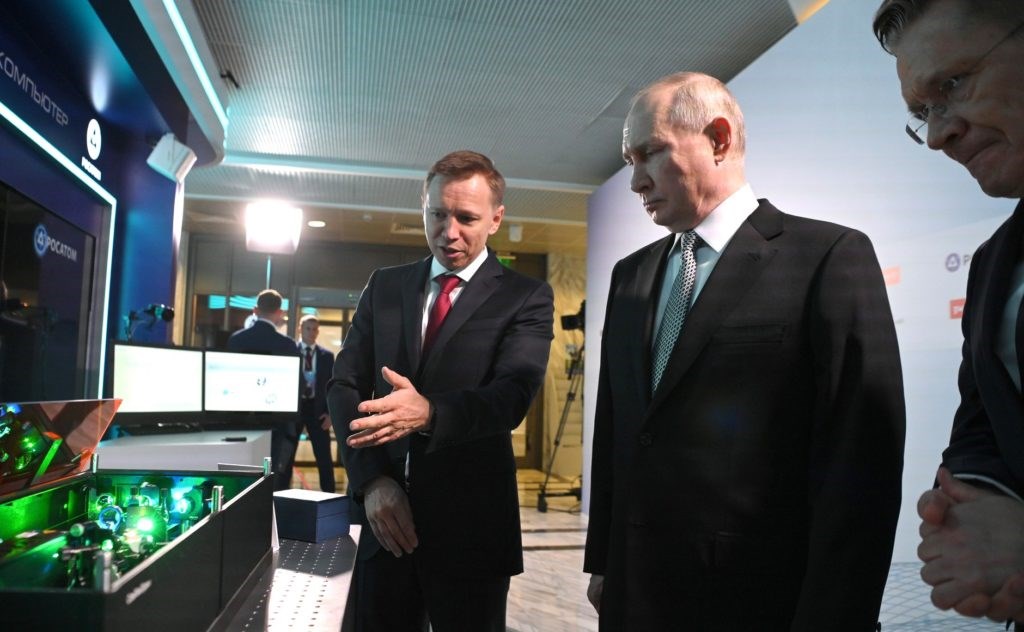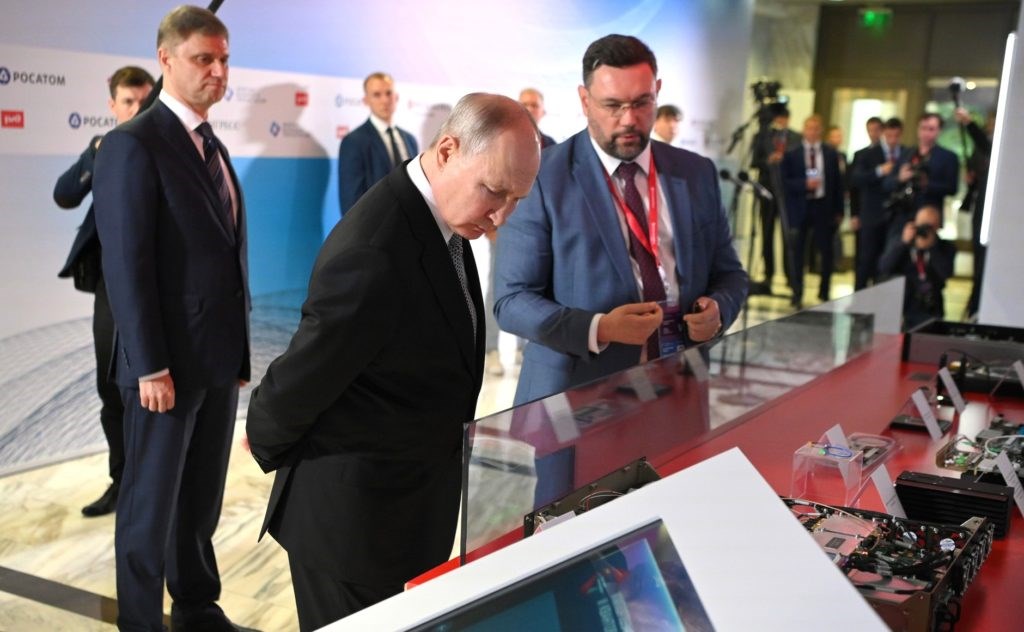 At the Future Technologies Forum held in Russia, President Vladimir Putin was shown the current state of the country in the field of quantum computing. Rosatom, the Russian State Nuclear Energy Corporation, the state agency responsible for coordinating national initiatives on technological innovation, showcased its 16-qubit quantum computer.
At the Future Technologies Forum held in Russia, President Vladimir Putin was shown the current state of the country in the field of quantum computing. Rosatom, the Russian State Nuclear Energy Corporation, the state agency responsible for coordinating national initiatives on technological innovation, showcased its 16-qubit quantum computer.Russia’s quantum computer is “impressive” in the military field
According to Rosatom’s own press release on the subject, useful, molecule-simulated calculations have already been performed on this computer. The Russian processor is said to use the same quantum annealing technology that has been shown to be impressively useful for military applications. It should be noted that quantum annealing is a quantum computation method used to find the optimal solution of problems with many solutions by taking advantage of quantum physics-specific properties such as quantum tunneling, entanglement and superposition. In short, Russia’s quantum computer should not be confused with the “quantum” processor introduced by Iran.
 Developed by the Lebedev Physics Institute of the Russian Academy of Sciences (LPI) and the Russian Quantum Center, the quantum computer is trapped with integrated photonics, an approach used by major quantum computing companies such as Quantinuum and IonQ to achieve higher qubit number scalability and at the same time reduce the effect of noise. / seems to take advantage of trapped ion qubits. In quantum computing, you can compare noise to errors in traditional computers.
Developed by the Lebedev Physics Institute of the Russian Academy of Sciences (LPI) and the Russian Quantum Center, the quantum computer is trapped with integrated photonics, an approach used by major quantum computing companies such as Quantinuum and IonQ to achieve higher qubit number scalability and at the same time reduce the effect of noise. / seems to take advantage of trapped ion qubits. In quantum computing, you can compare noise to errors in traditional computers.The development of this quantum computer of Russia actually started quite a while ago. Ilya Semerikov, the man behind the program, began work on trapped ions in 2015. As a result of these studies, a quantum clock was also built for the Russian GLONASS. This success led Rosatom to include trapped ion technology in its quantum computing roadmap as one of the possible technologies that could be used. “Our quantum computer, which is very important, is already doing useful work by modeling molecules and not doing scientific abstraction,” said Ilya Semerikov.
Not the best and never will be
Russia’s 16-qubit quantum computer, on the other hand, isn’t and won’t be the best today. In any case, Russia has no such intention within the scope of its programs – at least on this project. For example, IBM has quantum computers that reach 127 qubits. However, there is a quantum annealing difference, which we mentioned above, between the two applications. So Rsuya won’t be able to get a “quantum advantage” anytime soon.
However, quantum annealing systems could be quite productive for what Russia is trying to do. These systems are easier to scale and can work better in a specific area. This specific area is also referred to as optimization. This optimization can provide serious gains in the military field. Apart from that, resource allocation, product design, logistics etc. They can also be used to optimize fields.